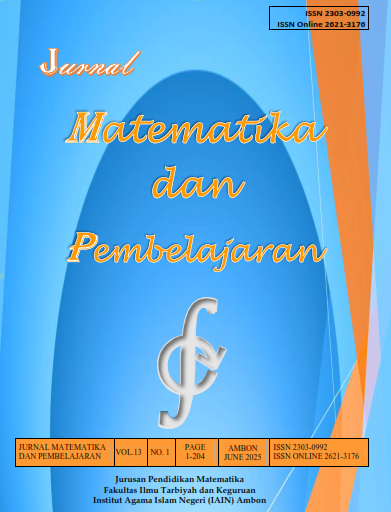TRANSFORMATION OF THE COMPUTATIONAL THINKING PROCESS OF STUDENTS TO SOLVE MATHEMATICAL PROBLEMS THROUGH REFLECTION
DOI:
https://doi.org/10.33477/mp.v13i1.8210Abstract
Computational thinking can make it easier for students to solve mathematical problems because it involves various skills and techniques that train students to formulate complex problems into simple ones. However, the current learning approach limits students from developing computational thinking skills. Teachers tend not to innovate and are more dominant in using monotonous learning which results in low computational thinking skills for students. Reflection is carried out to stimulate the transformation of students' computational thinking processes. This study aims to describe the transformation of students' computational thinking processes in solving mathematical problems through reflection. This type of research is descriptive research with a qualitative approach. The research data consists of student answers, think-aloud results, and semi-structured interview results. The results showed that students with low problem-solving abilities experienced assimilation at the decomposition stage only, while at the pattern recognition, abstraction, and algorithmic thinking stages students experienced accommodation. This is because in formulating strategies and implementing plans students need reflection to recognize patterns, apply patterns, draw conclusions about solutions, and complete incomplete algorithms. Meanwhile, students who have moderate problem-solving abilities experience assimilation at the decomposition and pattern recognition stages, while at the abstraction and algorithmic thinking stages accommodation occurs. This is because in implementing plans students need reflection to correct errors in using patterns, draw conclusions, and complete algorithms.
Downloads
Published
Issue
Section
License
Copyright (c) 2025 Elly Susanti, M. Gunawan Supiarmo, Turmudi, Sri Harini

This work is licensed under a Creative Commons Attribution-NonCommercial-ShareAlike 4.0 International License.







